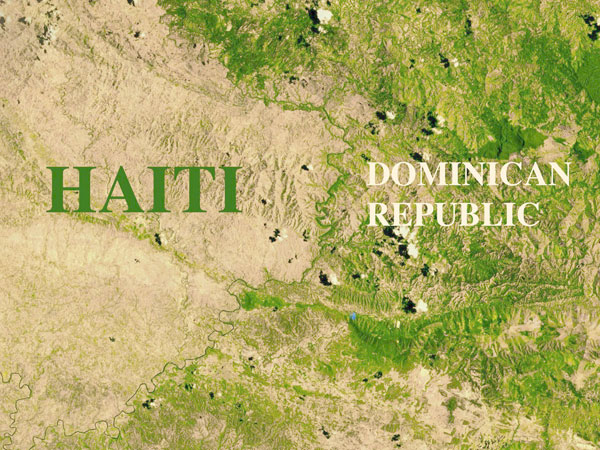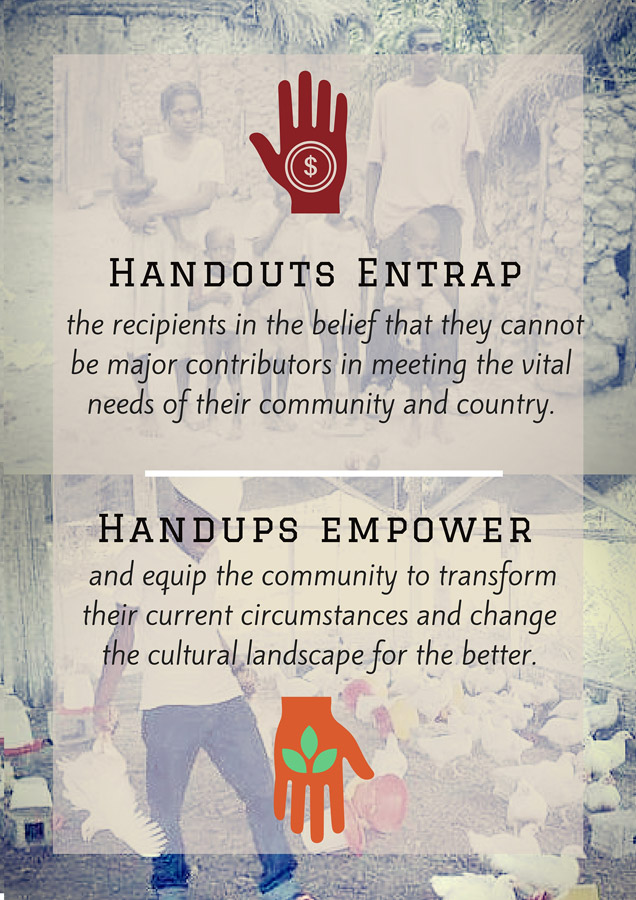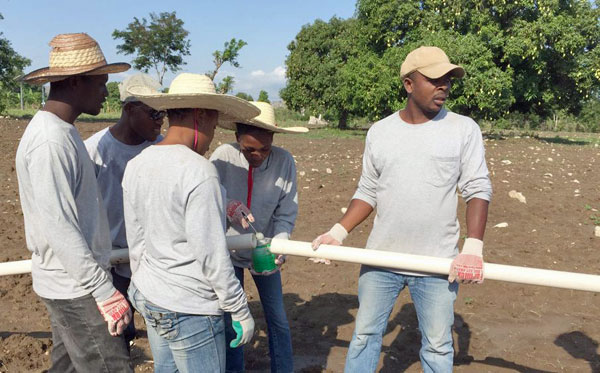The Secret to Seeing Long Term Results in Haiti
Partners in Agriculture is a small organization serving Haiti, a country that has seen great tragedy. From slavery to clear-cutting to fires and earthquakes, the people of Haiti have endured much and lacked the resources necessary to rebuild high-quality lives.

The world has taken notice of Haiti, and help has come in many forms. Partners in Health, our parent organization, was founded in 1987 in response to the prevalence of preventable illness in Haiti. A groundbreaking program, PIH built medical infrastructure in the country that would remain and grow to be sustained by Haitians.
Other, less permanent forms of help have also come across Haiti’s borders. Aid projects and donations are commonly received by needy Haitian communities. While these efforts do meet vital needs in the moment, they often come with a casualty: reinforcing an identity of helplessness and poverty.

Staying is Power
Modeled after PIH’s community-based structure, Partners in Agriculture is permanently settled in Haiti. From our homebase in the Central Plateau, we work hard to give Haitians the tools, motivation, and self regard they need to rebuild the beautiful country they begrudgingly call home.
Here are some quick facts about us that contribute to making a lasting difference:
- Zamni Agrikol began in 2002 as a child program of Zamni Lasante (a Partners in Health affiliate in Haiti)
- Organized efforts in 2013 as a registered 501(c)(3)
- A whopping 98% of our funding goes toward building effective programs!
- One school, Centre de Formation Fritz Lafontant (CFFL), with three areas of study: agriculture, woodworking, and construction. All areas include business practices and ethics in the curriculum.
- One hundred acres farmed, with a majority growing peanuts for Nourimanba
- 27,000 malnourished children (age 5 and under) fed with Nourimanba to date.
- One research partnership program
- Classes are taught in Kreyol, the native language of Haitians, and English
- 95% of CFFL instructors are Haitian
- All of our extension agents are Haitian and are selected from within the communities they serve.
All of our endeavors are formed to meet the deep needs of Haitians through Haitians. We are moving efforts in Haiti beyond handouts to hand ups, which allow resources to be used as an investment in the people of Haiti and their abilities to grow and lead their country. So, you may be wondering, how does this affect the way you give financially to Haiti?

How to Hand Up
There will always be a place to give financially to people in need. Partners in Agriculture is one of many institutions refocusing efforts on investing in** developing countries rather than donating to them. Giving to Haitians, like other countries in great need, is most impactful when it is based on the following convictions:
- Haitians are capable of transforming the commerce, ethics, and productivity of the country if given the right tools.
- Haitians are primarily responsible for meeting their own vital needs, and the needs of their communities.
One-off projects and donations can do more harm than good, as they tend to implicitly counteract these insights. Successful giving means looking at people and organizations on the ground that are running programs that operate under the above assumptions. Check out our multifaceted approach:
Malnutrition Treatment in Young Children
To offer vital financial support through PayPal, give here.
Haitians may see more tragedy befall their country in the future, and our goal is to see them rise to meet those challenges with more resources, deeper confidence, and national pride.
* Partners in Agriculture is based in beautiful Greenville, SC, USA. Our staff here consists of only four individuals, because we choose to emphasize manpower on the ground in Haiti. Founder Gillaine Warne travels to her beloved Haiti often, but she recognizes the importance of the work to be done here in the States: spreading awareness about hand-up programs that make an enduring impact in Haiti.
** Here, we don’t mean investing for a return, though those programs certainly exist. The language is used in this circumstance to denote building into the country’s greatest resource, people, for a greater return in the long run.

